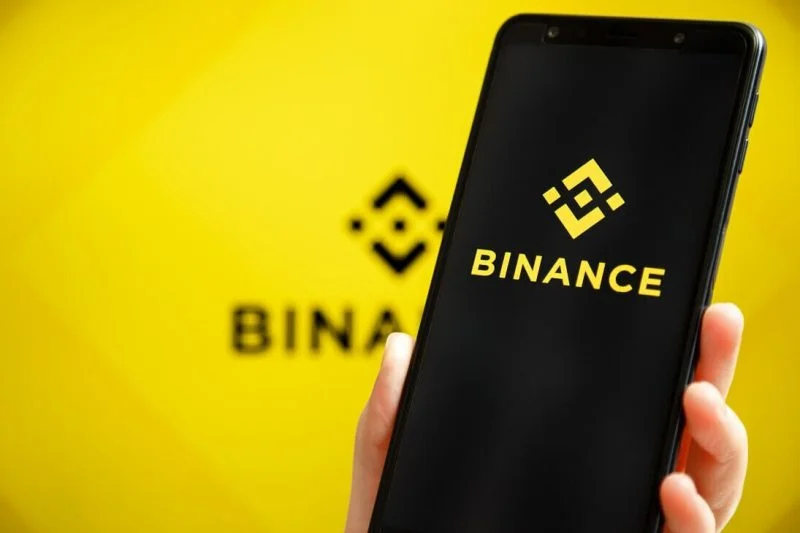Binance's Trump Pardon: What Happened and Why It Matters
Generated Title: Trump's Binance Pardon: A $4.3 Billion "Thank You?"
The pardon of Binance founder Changpeng Zhao ("CZ") by former President Trump has ignited a firestorm of controversy, raising serious questions about the intersection of cryptocurrency, political influence, and the justice system. The core question: was this pardon a legitimate act of clemency, or a quid pro quo masked in the complexities of digital finance?
The Data Points
Let's break down the available data. Zhao, after pleading guilty to failing to prevent money laundering on the Binance platform, received a presidential pardon in 2025. This came after Binance agreed to pay a hefty $4.3 billion fine to settle enforcement actions (a combined figure from the DOJ, OFAC, CFTC, and FinCEN). That's billion, with a "b." Simultaneously, reports surfaced about Binance's financial ties to World Liberty Financial, a Trump-linked crypto venture. CBS News reported that Binance donated software to World Liberty Financial, assisting in the launch of a cryptocurrency.
The timing here is crucial. Zhao’s guilty plea, the fine, and the subsequent pardon all occurred within a relatively short timeframe. This sequence of events alone raises eyebrows. But the real kicker is the reported $2 billion investment by an Emirati fund in Binance, paid entirely in World Liberty crypto. According to one source, "it wasn’t strange. It was nuts."
The White House, predictably, has dismissed concerns, with Trump claiming ignorance of Zhao and the crypto world. However, former U.S. Pardon Attorney Elizabeth Oyer, who served from 2022 to 2025, has been particularly vocal, calling the pardon "corruption." She argues that Zhao wasn't close to meeting Justice Department guidelines for a pardon and that the financial circumstances surrounding the pardon were unprecedented.
Oyer's credibility is also under scrutiny, given her dismissal from the DOJ in March 2025 after refusing to recommend restoring gun rights to actor Mel Gibson. (The DOJ denies her termination was connected to the Gibson matter).
The Algorithm of Influence
Here's where my analysis diverges from the standard narrative. While a direct quid pro quo is difficult to prove, the circumstantial evidence is compelling. Think of it like a complex algorithm:
1. Input: Binance faces serious charges and a massive fine for failing to prevent money laundering.
2. Process: Binance donates software to a Trump-linked crypto venture, and an Emirati fund invests heavily in that venture using Binance-associated cryptocurrency.
3. Output: Zhao receives a presidential pardon.

Correlation doesn't equal causation, of course. But the alignment of these events suggests a clear pathway for influence. It’s like watching a stock price surge immediately after a positive earnings report; you can't definitively say the report caused the surge, but the timing is hard to ignore.
And this is the part of the report that I find genuinely puzzling. Why pardon someone who pleaded guilty and whose company paid a record fine? The official explanations from the White House ring hollow, especially when contrasted with Oyer's stark assessment. As Newsweek reported, one former DOJ pardon attorney called the Trump Pardon for Binance CEO Was ‘Corruption’.
What about CZ himself? After the pardon, CZ responded to a question on X (formerly Twitter) about a potential refund of the fine payment, stating, "IF we get any refund, we will be investing that in America anyway, to show our appreciation. Haven’t asked yet, I think." This statement, while seemingly innocuous, hints at a recognition of the unusual circumstances surrounding the pardon. He didn't have to say he'd reinvest in America.
It's worth noting that the International Consortium of Investigative Journalists (ICIJ) has also reported on links between Binance and illicit funds, claiming that Binance facilitated at least $408 million worth of tether (USDT) transactions for the organized crime-linked Huione Group between July 2024 and July 2025. This further complicates the narrative, suggesting that Binance's problems extend beyond Zhao's initial guilty plea.
Data Needs More Data
One critical area where data is lacking is the internal communications within the Trump administration regarding the pardon. Were there explicit discussions about the financial benefits to Trump-linked entities? Did anyone raise concerns about the ethical implications? Oyer's lawsuits and potential congressional testimony could shed light on these questions, but for now, we're left with speculation.
Furthermore, it's important to acknowledge the limitations of the available data. The precise value of Binance's software donation to World Liberty Financial is unclear. The exact terms of the Emirati fund's investment are not fully transparent. And the motivations of the individuals involved remain subject to interpretation.
The Price of Clemency
The pardon power is a powerful tool, intended to serve the interests of justice and mercy. But when it's perceived as being influenced by financial considerations, it undermines public trust in the legal system. The question isn't simply whether Trump acted illegally (a difficult case to make), but whether he acted ethically and in the best interests of the country. The data suggests that he did not.
Follow the Money...and the Pardons
The Binance pardon highlights the growing intersection of crypto, politics, and potential corruption. While a direct quid pro quo may be difficult to prove, the circumstantial evidence is compelling. The timing of events, the financial ties, and the lack of a clear justification for the pardon all point to a troubling reality: that access to power can be bought, even in the realm of presidential clemency.
